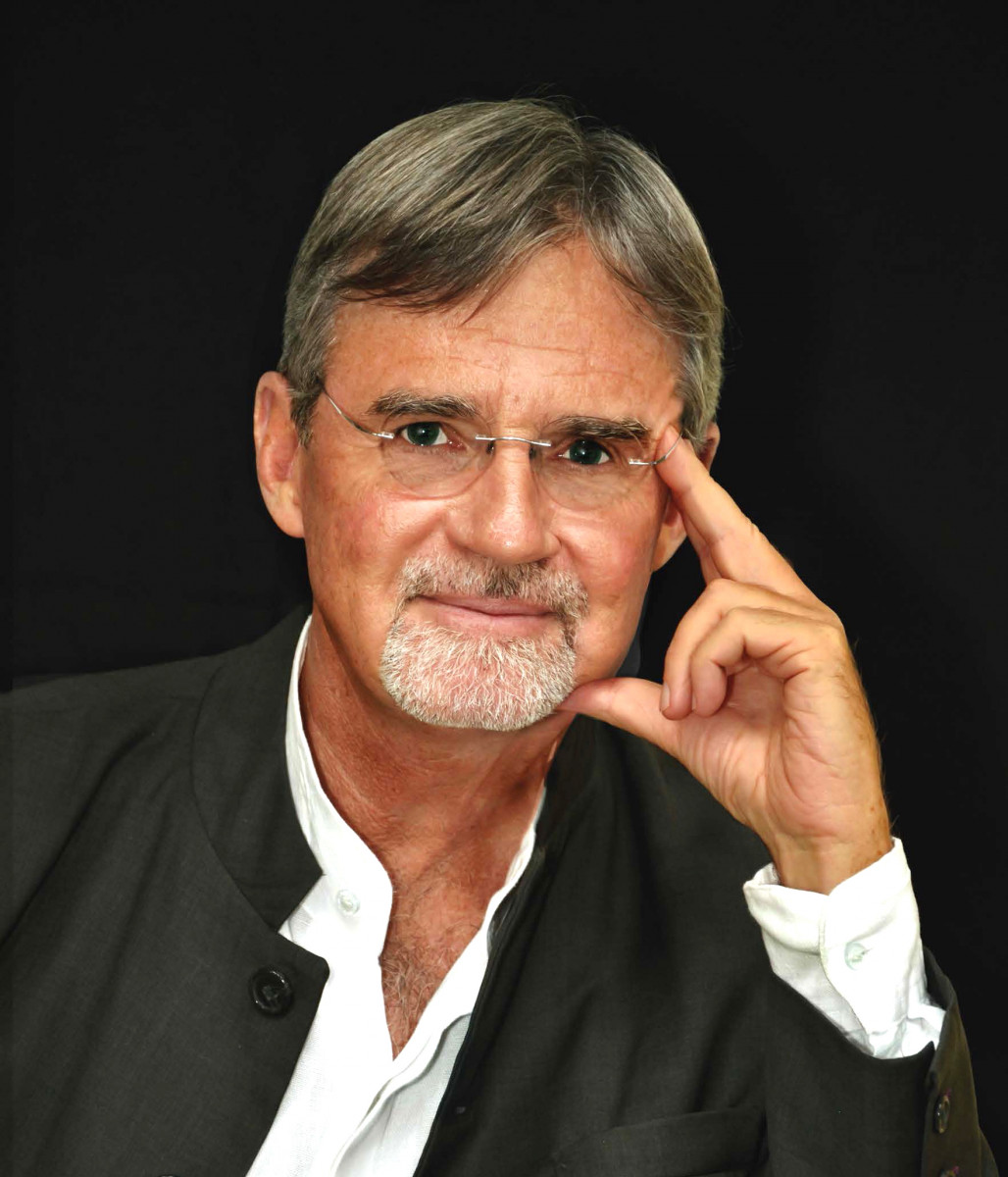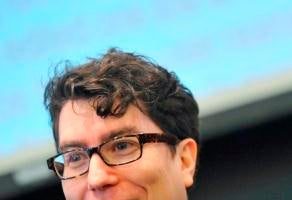
Kai Bird believes biographies are the most intimate and probing forms of history.
The executive director and distinguished lecturer of the Leon Levy Center for Biography at the CUNY Graduate Center is also the author of several books. This includes the co-authored, Pulitzer Prize-winning American Prometheus: The Triumph and Tragedy of J. Robert Oppenheimer, a biography of the nuclear physicist who came to be known as the Father of the Atomic Bomb. In 2023, this book received further attention when it was adapted into the Academy Award-winning movie, “Oppenheimer,” directed by Christopher Nolan. Bird will speak to the theme “What We Got Wrong: Learning From Our Mistakes” for Week Three of the Chautauqua Lecture Series at 10:45 a.m. today in the Amphitheater.
“We’ve invited him to give us a window into the legacy of J. Robert Oppenheimer and really take a deep dive into what was going on in that man’s mind as he was leading the invention of a potentially world-destroying technology,” said Jordan Steves, the Emily and Richard Smucker Chair for Education.
American Prometheus details the journey of the atomic bomb’s creation as well as the complex, and sometimes contradictory, morality of Oppenheimer himself. He was the director of the Los Alamos Laboratory within the Manhattan Project, and oversaw the invention of the atomic bomb. Two of his creations, Little Boy and Fat Man, were dropped on the Japanese cities Hiroshima and Nagasaki on Aug. 6 and 9, 1945, killing nearly 200,000 people.
Audiences know, from both the book and movie, that Oppenheimer struggled with what he has wrought.
“Oppenheimer had convinced himself that (the bomb) was a necessity to end all war,” Bird said in an interview with The New Yorker. “His hope was that this weapon was going to be so terrific that it would convince people that we could never have a World War like they were engaging in at the moment.”
In the years following the war, Oppenheimer strongly opposed the creation of more nuclear weapons. He warned of the danger they would pose in the wrong hands, something Bird has continuously stressed. Bird believes that leaders have become complacent about their access to nuclear weapons.
“We’re still living with the bomb. We’re still living with the danger that these weapons could be used again,” Bird said at the CUNY Graduate Center in July 2023, calling in from Washington D.C. “… People need to realize that Oppenheimer himself, even three months after Hiroshima, gave public speeches in which he said these are weapons for aggressors. These are weapons of terror.”
Oppenheimer’s warnings weren’t taken seriously, and the United States doubled down on their nuclear program and other countries soon followed. In the height of the McCarthy era, during a secret hearing, America’s most famous scientist had his security clearance revoked.
During his talk at CUNY, Bird used Oppenheimer’s case as an example of what has inspired a new wave of anti-intellectual politics. He highlighted the importance of scientists as public figures, and heeding their advice on scientific matters — from climate change to the pandemic to artificial intelligence.
“That’s what makes the story really interesting — what happened to Oppenheimer, his downfall. And that is also what resonates today,” Bird said at CUNY. “We’re still living, not only with the bomb, but we’re living with McCarthyism. The seeds of Donald Trump were planted in 1954.”
Today will mark Bird’s second engagement with Chautauqua Institution. Earlier this year, Bird was a keynote speaker at the Mandel Opera and Humanities Festival, moderated by President Michael E. Hill. He spoke on the theme “Power,” alongside performances from Doctor Atomic and Fantasy on the Magic Flute by the Cleveland Orchestra. His most recent work includes biographies on President Jimmy Carter and Robert Ames, as well as his memoir detailing his childhood in the Middle East, Crossing Mandelbaum Gate: Coming of Age Between the Arabs and the Israelis.
“The time was right to talk about this,” Steves said, “ ‘Oppenheimer’ was a blockbuster and people are still talking about it. This conversation has immediate relevance to the world we live in today, with two conflicts that the U.S. is actively participating in. So it’s an important conversation we’re hosting here which has room for discussion.”




